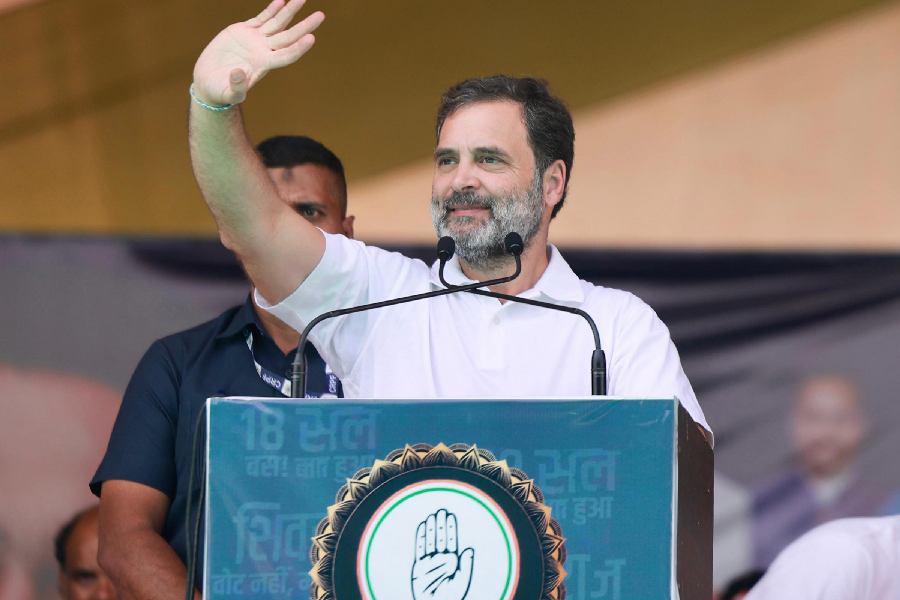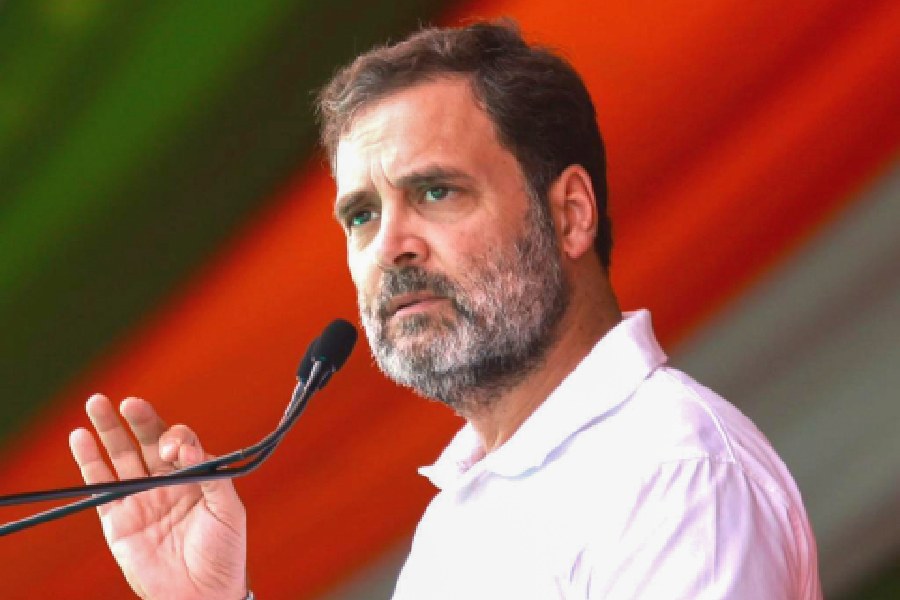Rahul Gandhi on Saturday described Madhya Pradesh as the “epicentre” of corruption, trying to blunt Prime Minister Narendra Modi’s main electoral plank against the Congress.
“No state in the country has witnessed such corruption. Madhya Pradesh is the epicentre of corruption in the country. They have looted even funds meant for children,” Rahul said at Shajapur in poll-bound Madhya Pradesh.
“There were scams in the midday meal programme and school uniforms as well. Who doesn’t know about the Vyapam (admission and recruitment exam) scam? We have seen irregularities in the Mahakal Corridor project (in Ujjain). MBBS seats were sold. Paper leaks have become common.”
Former Congress chief minister Kamal Nath said the BJP’s corrupt government had turned Madhya Pradesh into “Chaupat Pradesh” (Ruined State). Citing a “rate card” of corruption, he said a 50 per cent commission had become the norm.
“Even the owner of 50 acres of land can buy a BPL (below-poverty-line) card here. They stole my MLAs to form the government. It’s time to save Madhya Pradesh,” Nath said.
The Congress’s successful poll strategy in Karnataka earlier this year had rested on two pillars: exposing the state BJP government’s corruption with the focus on a “40 per cent commission” regime, and issuing guarantees on welfare schemes. The party has worked out a similar model for Madhya Pradesh, with Rahul repeatedly drawing the voters’ attention to Karnataka where all the guarantees have been fulfilled.
The negative perception in Madhya Pradesh about Shivraj Singh Chouhan’s BJP government has not, however, deterred the Prime Minister from sticking to his all-weather strategy of attacking the Congress and the Opposition alliance INDIA over corruption.
Modi had even in Karnataka accused the Congress of corruption without referring to the BJP government’s track record there, provoking charges of duplicity on graft.
At Bilaspur in poll-bound Chhattisgarh, too, Modi said the Congress government of Bhupesh Baghel had soaked every scheme in corruption, not even sparing food grain or cow dung.
“They are a bit scared because I am sitting there at the Centre. If they win again, they will run amok. Will their return do any good to Chhattisgarh?” he said.
Modi warned the voters of Chhattisgarh that electing a Congress government would hamper the state’s development, playing up the “double engine government” plank despite the Manipur unrest having left it in tatters.
He said the Chhattisgarh government had frustrated all the Centre’s attempts to help the state’s people and castigated it for child malnutrition. He seemed to have forgotten that his home state of Gujarat has been faring poorly on malnutrition.
Modi underlined that he had given the Vande Bharat train to Chhattisgarh.
Modi also repeated his claim that the Centre was procuring the entire paddy for Chhattisgarh while the state was claiming credit for it — a narrative the state government has contested.
The Chhattisgarh government procures paddy at Rs 2,500 a quintal, which is Rs 600 above the minimum support price fixed by the Centre.
In 2018-19, the state bought 80.38 lakh million tonnes of paddy and the Centre lifted only 23 lakh million tonnes. In 2022-23, the state procured 107 lakh million tonnes and the Centre only 36.12 lakh million tonnes.
Baghel has accused the Prime Minister of falsehood.
Modi didn’t respond to Rahul’s persistent questioning on Adani and demand for a caste census. On Saturday, Rahul said he had been disqualified from Parliament because he had raised questions about Adani, flagging how airports, ports, silos and various other elements of infrastructure were being given to him.
He stressed the need for adequate representation and participation of all strata of society, arguing that a caste census was the first step towards the empowerment of deprived populations.












